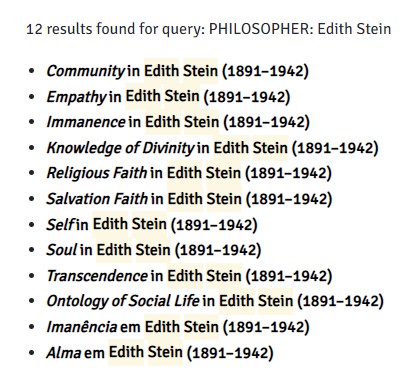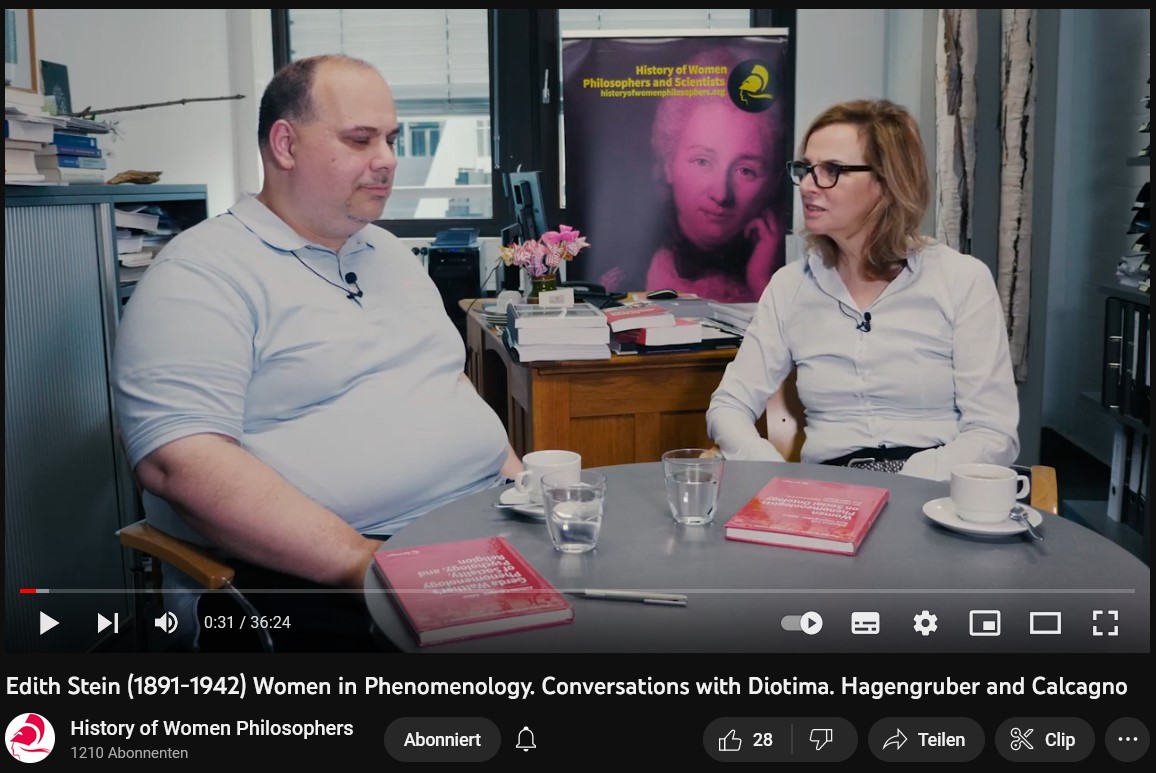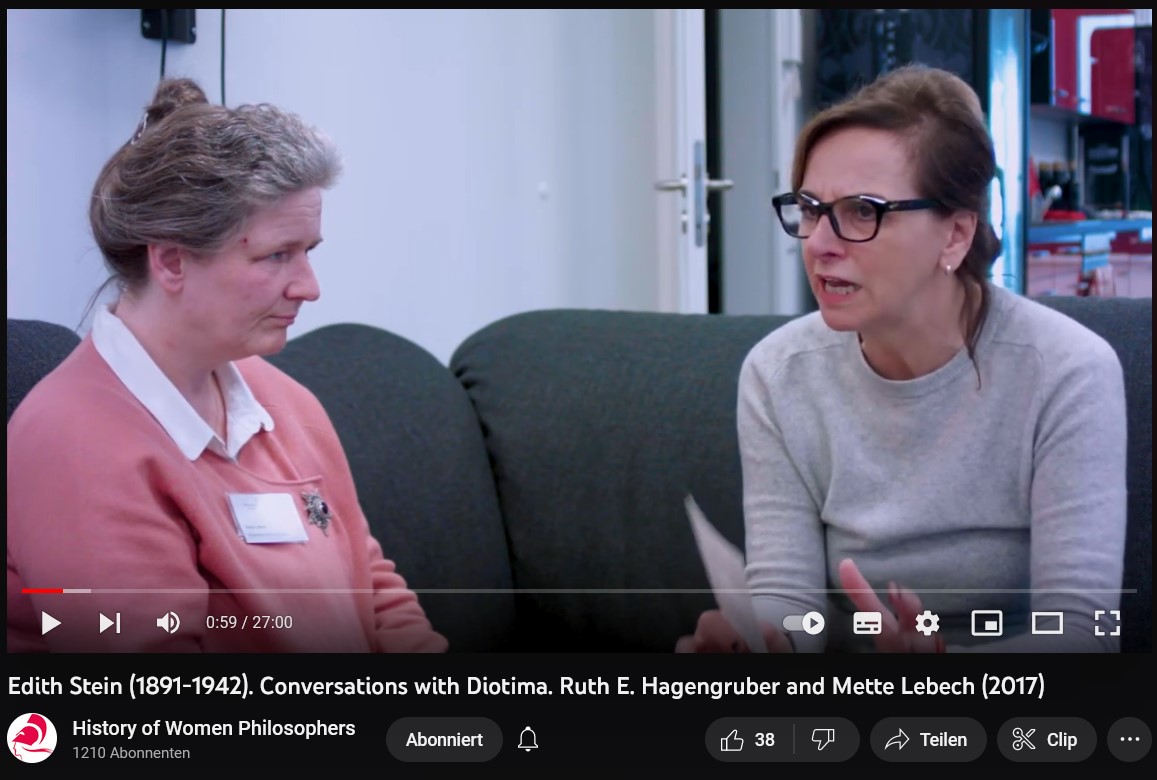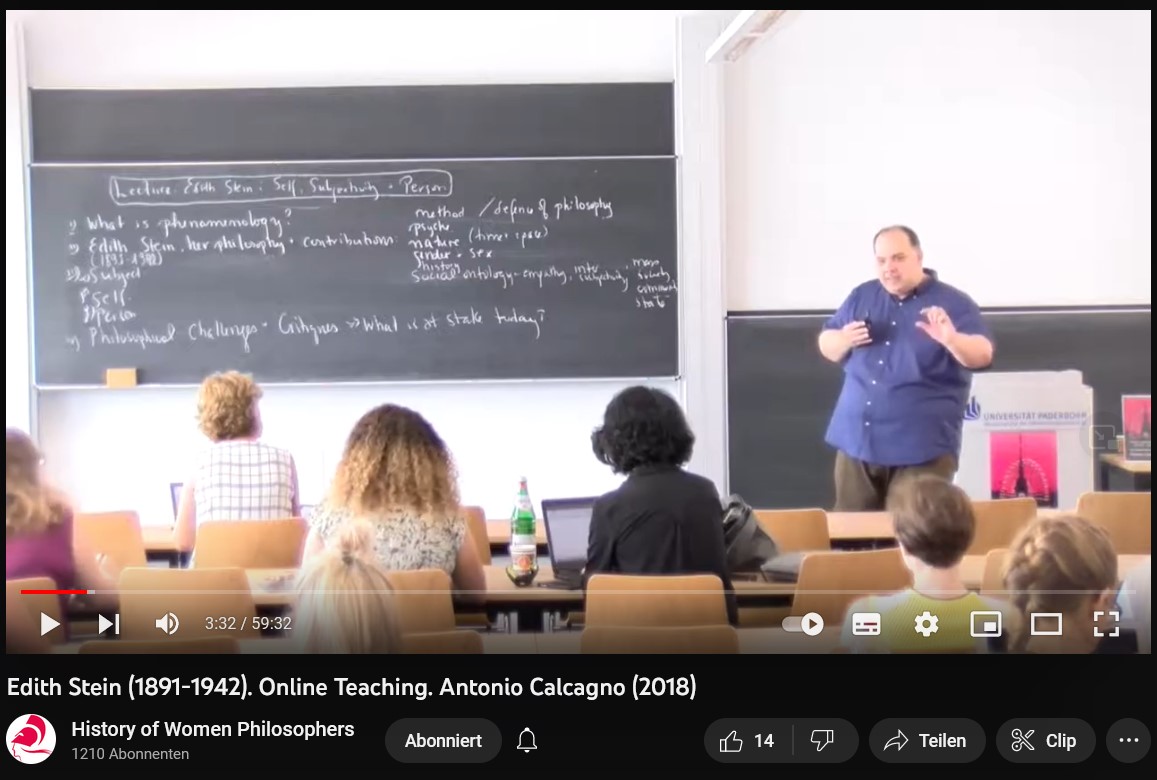In an early version of a famous text, Edith Stein imagines Thomas of Aquinas knocking on Husserl’s door late at night. The two philosophers engage in a dialogue about the similarities between scholastic philosophy and phenomenology. One of their central agreements is that an objective logos presides in everything, which is open both to medieval thinking and to the phenomenlogical study of consciousness. In comparing phenomenelogical and medieval essence intuition, Stein notes how the phenomenological method presents a corrective to other modern philosophies, namely as bringing the receptivity of thinking to the fore, the non-ownership of sense tha gives meaning to our ideas:
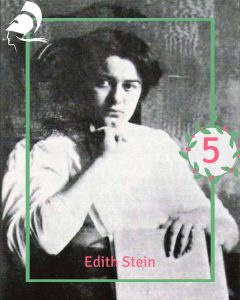 “If, in the process of analyzing which seeks to push forward from the original material to the essence, Thomas sees genuine action of the “active intellect” (intellectus agens), so has the “intus legere,” the intellectual intuition, at which all intellectual movement aims, the character of receiving. Phenomenology has brought this passive element especially into prominence, since it points out the opposition of its methods of inquiry, which are guided by the objective ratio, to those modem philosophical directions for which thinking is a constructing and cognition is a creation of the inquiring intellect.” (Stein 2010)
“If, in the process of analyzing which seeks to push forward from the original material to the essence, Thomas sees genuine action of the “active intellect” (intellectus agens), so has the “intus legere,” the intellectual intuition, at which all intellectual movement aims, the character of receiving. Phenomenology has brought this passive element especially into prominence, since it points out the opposition of its methods of inquiry, which are guided by the objective ratio, to those modem philosophical directions for which thinking is a constructing and cognition is a creation of the inquiring intellect.” (Stein 2010)
One could thus describe Stein’s metaphysics as a creative approprition of Husserl and Thomas Aquinas that shows phenomenology to be part of the perennial philosophy.
If you are interested in Stein research, find Scholars from our New Voices network.
We have twelve ECC articles on Stein’s ideas:
Several talks of our Conference “Stein’s and Husserl’s Intertwined Itineraries 1916-25, 20-21 May 2021, are availabe on Youtube:
- Kathleen Haney – “The Other and the Possibility of Transcendental Intersubjectivity”
- Angela Ales Bello – “Rethinking Philosophical Anthropology and Metaphysics”
- George Heffernan – “Stein on the Significance of Husserl’s Way of Looking at the World”
- Julia Jansen – “Stein and Husserl on Valuing”
- Mette Lebech – “Transcendental Intersubjectivity” and Philosophical Anthropology
- Mariéle Wulf – “Stein’s Philosophical Anthropology as a completion of Husserl’s project?”
You may also visit Edith Stein’s Timeline with biographical and bibliographical data:
We also present two Conversations with Diotima on Edith Stein, as well as a lecture by Antonio Calcagno:
References
Stein, Edith (2010). Person in the World. Introduction to the Philosophy of Edith Stein. Dordrecht: Kluwer.
You cannot copy content of this page









